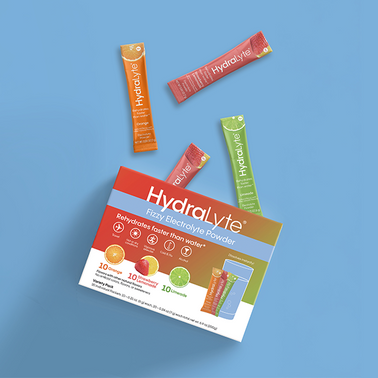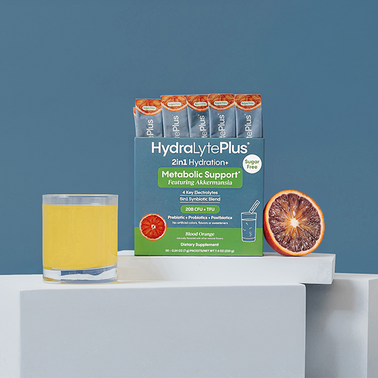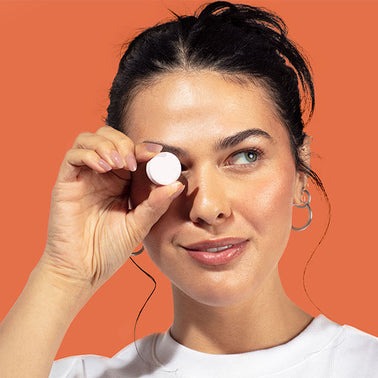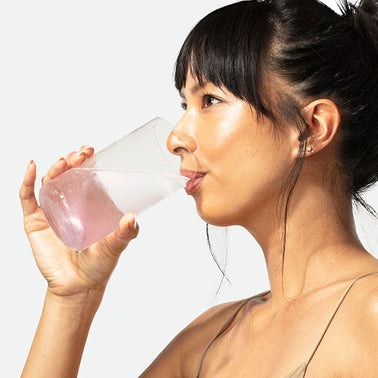3 Health Issues Caused by Dehydration
 Photo on Unsplash by Camille Brodard
Photo on Unsplash by Camille BrodardWater makes up about 60% of the human body. If the body doesn’t receive enough water throughout the day it will begin to experience symptoms of dehydration, which include extreme thirst, light-headedness, headaches, and muscle cramps. There are factors that can increase your risk of dehydration, like extreme heat, overexertion, or chronic health conditions, but oftentimes is simply due to the lack of consistent and adequate water intake.
According to The Third National Health and Nutrition Survey, males aged 19–30 should drink 3.7 liters of water per day, and females aged 19–30 should drink 2.7 liters of water per day. However, keep in mind this is a generalized range for most of the population and some people may require more or less of a daily intake.
If you are constantly dehydrated your symptoms can progress beyond mild dehydration to conditions that are more harmful to your health.
1. Dry Eyes
Dehydration can lead to dry eyes and, therefore, blurred vision if left unresolved. The ocular surface of your eye requires lubrication in order to function properly and remain comfortable. When your eyes become dehydrated from lack of water intake it can affect your visual function and comfort severely.The most critical component of the tear film, which covers the ocular surface, is the aqueous layer, which is mostly made of water. If your body becomes dehydrated, this part of the tear film may become deficient, which can cause the surface of your eyes to become irritated and break down, resulting in blurry vision.
Symptoms of dry eyes include burning, the feeling of foreign objects in the eyes, sensitivity to light, decrease in visual clarity, eye strain, and headaches. In order to reduce these symptoms, it’s important that you drink the recommended daily amount of water for your age and body type. In addition to being mindful of your water intake, using eye drops, taking anti-inflammatory medication, getting an eye exam, and switching to hydrating contact lenses can all be beneficial to your eye health.
Using hydrating eye drops frequently and taking anti-inflammatory medications can reduce friction, swelling, and discomfort caused by dry eyes. Seeing an optometrist for a routine visit can help determine if there is another cause for your dry eye symptoms or if it’s solely due to dehydration. Depending on your diagnosis, the doctor will then write you a prescription for more breathable and moist prescription contact lenses. Moist contacts will provide lasting hydration when wearing lenses is unavoidable.
2. Decreased Cognition
Recent studies have proven that even slight dehydration is enough to cause moodiness, trouble focusing, headaches, and fatigue. Oftentimes people think of physical decline in relation to dehydration, but you’re at the same risk of cognitive decline from dehydration as well. Cognitive decline due to dehydration can often go unnoticed by chalking it up to fatigue or burnout. However, if it’s not corrected in time cognitive decline can worsen as you become even more dehydrated.The studies carried out by The U.S. Army Research Institute of Environmental Medicine proved that those who aren’t sufficiently hydrated are moodier and find it more difficult to get work done. Therefore reports state that staying hydrated—especially after exercise—is the key to maintaining a good mood, ability to concentrate, and warding off headaches.
Even knowing this information, many people still find themselves falling short in their daily water consumption, especially if they frequent the gym. In this case, it may be necessary to track your daily water intake with an app like Daily Water Tracker Reminder, which allows you to easily monitor your water intake and stay hydrated each day.
3. Extreme Fatigue
If you’re suddenly feeling more tired than usual or have been feeling excessively tired for a prolonged period of time, it’s important to look into your daily habits and determine what is causing your fatigue. You probably know that getting a poor amount of sleep can cause weariness and low energy levels.However, dehydration can also cause sluggishness. Dehydration is a medical condition in which your body loses fluid and electrolytes more quickly than it can replace them. As dehydration sets in, your blood pressure drops, leading to poor circulation and reduced blood flow to your brain, which causes feelings of sleepiness.
Dehydration and poor sleep are also linked because lack of hydration can cause muscle spasms that disrupt your natural sleep cycle. Furthermore, dehydration dries out your nasal passages, causing snoring that can decrease sleep quality as well.
A better night’s sleep should be a driving factor to hitting your water intake goal for the day! Nevertheless, building up your water intake can take time and trial and error if you’re not used to drinking that much per day. Consider supplementing your water with an electrolyte powder. Electrolytes are minerals in your blood that help regulate and control the balance of fluids in the body. By adding electrolytes to your daily water you can help your body hydrate 2-3 times faster and feel more energized!
It’s common knowledge that we must drink water to remain healthy but the details are often overlooked. Make sure you are consuming the right amount of water for your age, body type, and activity level, in order to feel healthy, happy, and well-rested!










